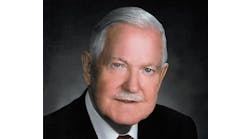Former President Bill Clinton unveiled a new plan to drastically improve STEM education in Eastern Kentucky at a Clinton Global Initiative America meeting. The one-of-a-kind initiative hopes to bring high-skill, high-wage jobs to the region and make the region a center for science, technology, engineering and math education. The program will be led by East Kentucky Power Cooperative (EKPC) and Project Lead the Way (PLTW).
Clinton announced the organizations' plan to help the region’s teachers pursue professional development, including National Board certification, and for school districts to implement Project Lead The Way’s innovative STEM-based curriculum.
“We are creating the building blocks for success and prosperity in Eastern Kentucky,” said Anthony “Tony” Campbell, EKPC’s president & CEO. “We see this as the beginning of a long-term effort to fundamentally change the environment for high-quality jobs and investment in the region.”
The initiative is being called STEM-Transforming Eastern Kentucky, or STEM-TEK and will engage more than 80,000 students in 19 counties in PLTW’s high- quality, project-based STEM education over a three-year period. It will also provide professional development opportunities for 3,000 teachers, including resources to achieve Teacher Leader Master’s Degrees with National Board Certification, and build a post-secondary pipeline to prepare students for high-skill, high-wage careers in Eastern Kentucky.
Joining EKPC and PLTW in this initiative are Morehead State University, Kentucky Educational Development Corporation and Shaping Our Appalachian Region (SOAR). Additionally, STEM-TEK will work with local colleges and universities to ensure they have the capacity for students to pursue their post-secondary studies in Eastern Kentucky, and provide students with incentives to attend local institutions of higher education. By keeping talented young minds in Eastern Kentucky, STEM-TEK will create a workforce prepared for high-skill, in-demand jobs.
A 2014 study of more than 56,000 Indiana high school graduates showed that those who participated in PLTW were 3-6 times more likely to study a STEM-related major in college than their peers who had not taken PLTW in high school.



